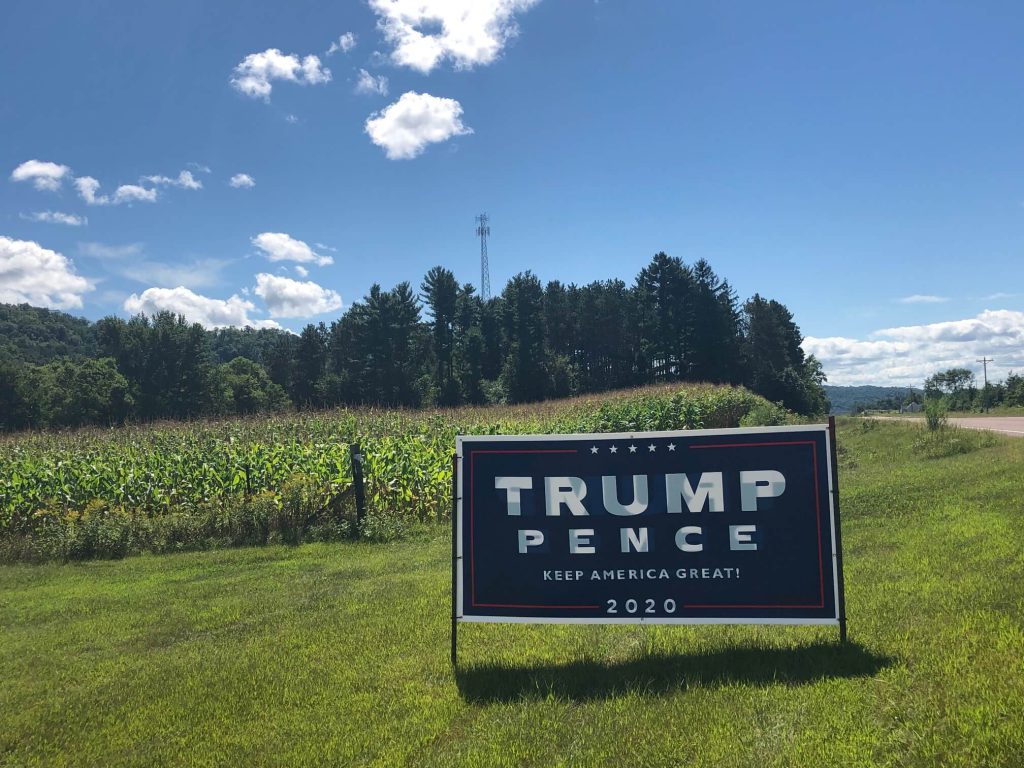Rural Wisconsin Needs Government Help
They supported Republicans again. Will rural residents get help they need?
In a time of overlapping crises, rural Wisconsin shifted further to the right in 2020, voting overwhelmingly for President Donald Trump by often higher margins than in 2016.
But in just over a month, President-elect Joe Biden will be sworn in and the hard work of governing, amid gridlock in Congress and intransigence in the Wisconsin State Legislature, will begin. That governing will take place as many rural Wisconsinites lack adequate housing or internet access, wages in many jobs remain low and family farms are dying every day.
Hildreth’s organization works to advocate for progressive policies in rural communities across the country. He’s found that there can be a disconnect between the politicians rural voters support and the policies they want to see enacted. For example, in this election voters in Florida and South Dakota selected Trump while voting to raise the minimum wage and legalize cannabis — two causes Trump opposes.
“Our polling shows that rural voters connected with Donald Trump’s promise to ‘drain the swamp’ because rural voters feel that they have been left behind by powerful people, who think Donald Trump is a powerful person who truly cares about them,” Hildreth said on a virtual roundtable of rural experts. “It’s not just about showing up. It’s about showing up with a plan. We need to show rural voters we are fighting for them.
A recent report from Wisconsin’s Office of Rural Prosperity laid out a policy roadmap for the state’s rural and tribal communities. But the challenge is finding spots where consensus can be found among community members and in the halls of power.
“I don’t know what the appetites of some Republicans are right now,” Julie Bomar, executive director of the Wisconsin Farmers Union, says. “We’re not partisan, we work both sides of the aisle. I’d hope there’s something in that multi-page report.”
Bomar, who also appeared on the roundtable, says that in Wisconsin improvements to rural water quality feel like they’re close to getting over the hump and expanded broadband internet access also seems like a point where consensus can be found.
But there are plenty of other areas in which Wisconsin’s rural areas need support. The challenge is finding the issues that communities can rally around to advocate for.
“We learned many people in rural areas are very excited about progressive topics; they’re not always excited about progressives,” Bomar says. “To make sure their concerns are uplifted and carrying a message that resonates with their neighbors is important. We need to continue to do what we’ve done is uplift those voices and engage in difficult conversations about what people’s needs and wants are.”
What Bomar wants to see, which will ultimately make it easier for progressive politicians to win these areas, is for rural voters and their issues to feel seen and paid attention to. It might sound simple, but if politicians could figure out a way to enact popular and helpful programs — simple and effective governance — and take credit for them, they can be elected.
Of course, in Wisconsin, there’s an added challenge to the needs of voters being heard and responded to effectively — gerrymandering. The state’s district maps are one of the biggest issues for the Wisconsin Farmers Union.
Because the Republicans in the Legislature can sleepwalk to a majority, it’s more difficult for popular, progressive policies to get a chance in Wisconsin, according to Bomar.
“Gerrymandering prevents a lot of the will of the people from being heard,” she says. “The way it is right now in Wisconsin, there are elected officials that don’t have to listen to their constituents. It’s just so rigged. Farmers Union members really believe that gerrymandering has to change in order to get good governance, responsive governance.”
Reprinted with permission of Wisconsin Examiner.






















As long as rural residents continue to elect Republican representatives who continue to vote for State funds for school choice and boondoggles like Foxconn, nothing is going to change. The rural areas will become more dependent on government aide whether its farm subsidies, foot stamps or Medicare. A significant rural brand band system could have been developed during Walker’s administration but wasn’t.